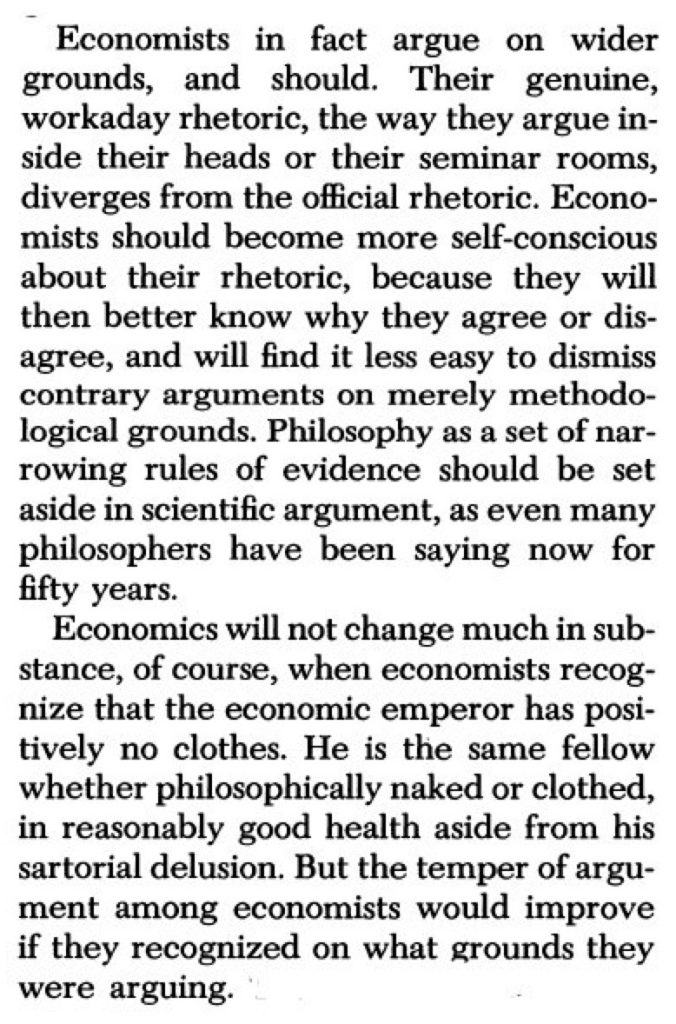It’s time for a look ahead to the spring catalogues. As ever, this is slightly random so I’ll be happy to add anything I’ve missed that authors or publishers think would be of interest.
From Princeton University Press, I already reviewed Jerry Muller’s The Tyranny or Metrics, out in a couple of weeks.
[amazon_link asins=’B076ZWW2MN’ template=’ProductAd’ store=’enlighteconom-21′ marketplace=’UK’ link_id=’6c922b1c-d140-11e7-aea4-415f3a3046ff’]
Radical Markets by Eric Posner & Glen Weyl looks intriguing – the argument is that inequality can be diminished and growth enhanced by a radical extension of the scope of markets. Talk about contrarian, in the current climate.
[amazon_link asins=’B0773X7RKB’ template=’ProductAd’ store=’enlighteconom-21′ marketplace=’UK’ link_id=’75aa32e9-d140-11e7-b12b-71bb8987b2e1′]
Daniel Cohen’s The Infinite Desire for Growth is out in English, looking at what growth has been about historically and what future progress will look like.
[amazon_link asins=’0691172536′ template=’ProductAd’ store=’enlighteconom-21′ marketplace=’UK’ link_id=’850552e9-d140-11e7-9377-5f61ef5e34fa’]
I’m super-eager to read Michael Best’s How Growth Really Happens, as a huge fan of his The New Competitive Advantage.
[amazon_link asins=’0691179255′ template=’ProductAd’ store=’enlighteconom-21′ marketplace=’UK’ link_id=’98a4d229-d140-11e7-94f2-89fba0e4dba3′] [amazon_link asins=’0198297459′ template=’ProductAd’ store=’enlighteconom-21′ marketplace=’UK’ link_id=’fc679c0c-d140-11e7-978b-e5ad5c149b44′]
Paul Tucker, formerly of the Bank of England and now at the Harvard Kennedy School, has written Unelected Power, about the role of central bankers and other technocrats in modern economic government.
[amazon_link asins=’0691176736′ template=’ProductAd’ store=’enlighteconom-21′ marketplace=’UK’ link_id=’b477ed90-d140-11e7-bedc-ed2d66478678′]
And there’s The Republic of Beliefs by Kaushik Basu.
[amazon_link asins=’0691177686′ template=’ProductAd’ store=’enlighteconom-21′ marketplace=’UK’ link_id=’c3100a93-d140-11e7-bf85-cf06acb85a3a’]
MIT Press up next, with an emphasis on tech. They have Terrence Sejnowski’s The Deep Learning Revolution; Meredith’s Broussard’s Artificial Unintelligence; John Kelleher and Brendan Tierney on Data Science; and an essay collection featuring the likes of David Autor, Lynda Gratton and Joshua Gans, What The Digital Future Holds. Also Big Is Beautiful: Debunking the Myth of Small Business by Robert Atkinson and Michael Lind.
[amazon_link asins=’026203803X’ template=’ProductAd’ store=’enlighteconom-21′ marketplace=’UK’ link_id=’eb13494d-ee55-11e7-b11e-473828d8a560′] [amazon_link asins=’0262534991′ template=’ProductAd’ store=’enlighteconom-21′ marketplace=’UK’ link_id=’213419c5-ee56-11e7-ac4b-b9ec7155918c’]
From Yale University Press, I like the look of Pascal Boyer’s Minds Make Societies and Tarleton Gillespie’s Custodians of the Internet. Scott Shane has written Is Entrepreneurship Dead? The Truth About Startups in America. This next one also looks enticing: Trading in War London’s Maritime World in the Age of Cook and Nelson by Margarette Lincoln. Anne-Marie Slaughter’s The Chessboard and The Web could be interesting.
[amazon_link asins=’0300227485′ template=’ProductAd’ store=’enlighteconom-21′ marketplace=’UK’ link_id=’3eaf4039-ee56-11e7-bc40-bb20d1121af9′] [amazon_link asins=’0300223455′ template=’ProductAd’ store=’enlighteconom-21′ marketplace=’UK’ link_id=’5553c274-ee56-11e7-bc4b-c168c2de25c6′]
In its Piketty tradition, Harvard University Press will bring us Thomas Piketty’s Top incomes in France in the 20th Century and also the 2018 World Inequality Report. David Engerman has The Price of Aid: The Economic Cold War in India. I am very much looking forward to reading Cognitive Gadgets: The Cultural Evolution of Thinking by Cecilia Heyes and also William Deringer’s Calculated Values: Finance, Politics and the Quantitative Age.
[amazon_link asins=’0674980158′ template=’ProductAd’ store=’enlighteconom-21′ marketplace=’UK’ link_id=’72331d9b-ee56-11e7-9f06-6b3b008f5da7′] [amazon_link asins=’0674971876′ template=’ProductAd’ store=’enlighteconom-21′ marketplace=’UK’ link_id=’88bc7681-ee56-11e7-8ffd-9773af377c66′]
Also in the catalog: Privacy’s Blueprint: The Battle to Control the Design of New technologies by Woodrow Harzog; A Business of State by Rupali Mishra about the East India Company; The Right of Publicity: Privacy Reimagined for a Public World by Jennifer Rothman.
Harvard Business Review Press is publishing Prediction Machines: The Simple Economcis of Artificial Intelligence by Ajay Agrawal, Joshua Gans and Avi Goldfarb in April.
[amazon_link asins=’1633695670′ template=’ProductAd’ store=’enlighteconom-21′ marketplace=’UK’ link_id=’9b4e21a9-ef15-11e7-90ea-89d236139fc9′]
Other university presses. Cambridge has The Fed and Lehman Brothers by Lawrence Ball due out in June; Prioritizing Development: A Cost-Benefit Analysis of the UN’s Sustainable Development Goals by Bjorn Lomborg in May; Patrick Kabanda’s The Creative Wealth of Nations about the arts and economic growth, also in May; and Richard Nelson et al with an overview of Modern Evolutionary Economics.
[amazon_link asins=’1108423574′ template=’ProductAd’ store=’enlighteconom-21′ marketplace=’UK’ link_id=’ba89a41f-ee56-11e7-a5af-cf263d6813ce’]
OUP: Cash and Dash: How ATMs and Computers Changed Banking by Bernardo Bátiz-Lazo; Inequality and Inclusive Growth in Rich Economies by Brian Nolan; The Wealth of a Nation: A History of Trade Politics in America by Donald Johnson; David Allen Green’s Brexit: What Everyone Needs to Know; and Ian Goldin’s Development in the ‘very short introduction’ series.
[amazon_link asins=’0198799438′ template=’ProductAd’ store=’enlighteconom-21′ marketplace=’UK’ link_id=’cac67059-ee56-11e7-8698-05251901f1dc’] [amazon_link asins=’0190865911′ template=’ProductAd’ store=’enlighteconom-21′ marketplace=’UK’ link_id=’d4b18064-ee56-11e7-b080-670319006ed8′] [amazon_link asins=’B077TNZM12′ template=’ProductAd’ store=’enlighteconom-21′ marketplace=’UK’ link_id=’b27de57b-ee57-11e7-b01e-39cbd7a77a25′]


